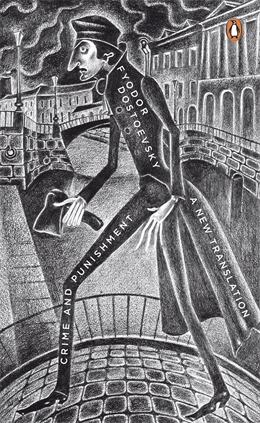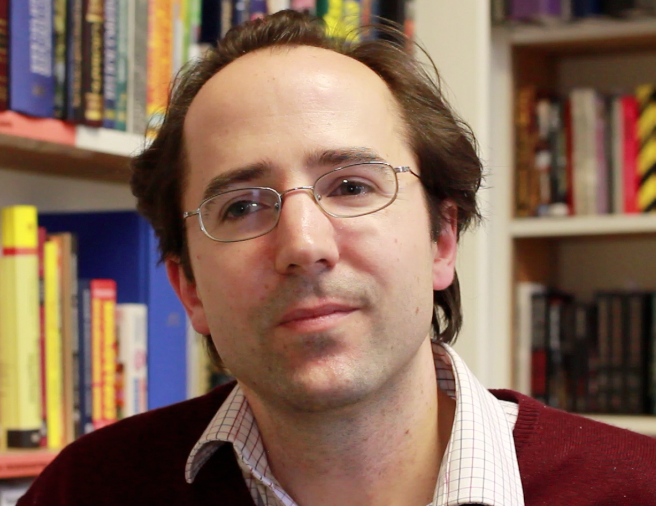I visited Oliver Ready recently at St Antony’s College, Oxford, where he is a research fellow in Russian society and culture, to hear about his five-year engagement with Dostoevsky’s Crime and Punishment (Penguin Classics, 2014): what persuaded him to take the project on? how did he limber up for it? and why – unusually – did he write his version out longhand rather than work on a computer? Below, there is a short extract from our conversation:
Oliver Ready: Something Russians talk a lot about in translation is the idea of a tuning fork when you’re setting out on a translation – ‘kamerton’ in Russian – and like an actor trying to get into the role you read something which isn’t a precise model, but which moves your linguistic resources in a particular direction and starts you thinking in particular rhythms.
[Translating Crime and Punishment] was experimental for me because I’d never translated a classic before and the first question people ask is ‘What are you doing? Are you going to write in the archaic language of the nineteenth century or are you going to write in twenty-first-century English?’, which is a false choice, because I think nearly all translators go for a compromise and it’s quite right that they should do, because it would be very fussy to try to write in 1860s English…
George Miller: …And it would be a construct in any case; it would be an imaginary language…
Oliver Ready: Yes, it would be an imaginary language, and it would expose the illusion that translators are ventriloquists, which they’re not. We’re not translators because we’re able to slip into any register of speech, any dialect. Most translators are much more limited than that in what they can do, and I don’t think that’s really the key to good translations. So in terms of what period of English I was aiming at, it would be OK, I think, if I moved from the language of the 1920s to the language of the 1950s in places. It’s very important when translating the novel to leave space for archaism, because there are some characters who very deliberately use Old Church Slavonicism or a certain very courteous, excessively polite way of speaking because they’re identifying themselves with the old class system that at the time Dostoevsky’s writing this novel is beginning to crumble. […]
I think as a translator you need to exploit all of the resources you have; you don’t want to limit yourself too much. Obviously I didn’t use locutions which are specifically of today, which in a few years time would be dated, but I did allow myself at times to use types of humour which are much more modern than Dostoevsky’s time and therefore have a bit more force for the contemporary reader. On the whole, in terms of word choice, I did use the Oxford English Dictionary a lot, and tried to avoid words – without a fixed rule – that came into English after, say, 1960…
(Oliver Ready is Research Fellow in Russian Society and Culture at St Antony’s College, Oxford. He is general editor of the anthology, The Ties of Blood: Russian Literature from the 21st Century (2008), and Consultant Editor for Russia, Central and Eastern Europe at the Times Literary Supplement. He has also recently translated the novel Before and During by the contemporary author Vladimir Sharov (Dedalus, 2014))



Pingback: Christ the Whore | The Curator